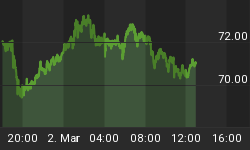When the U.S. financial sector overwhelmingly supported Joe Biden’s election bid, it was probably hoping for quid quo pro in the form of favorable policies that would allow it to continue enjoying the same perks--and getting away with the same indiscretions--it did under Obama and Trump. People employed in the securities and investment industry contributed a notch above $74 million toward Biden’s candidacy, easily topping what Barack Obama and Donald Trump raked in. But Wall Street might actually end up being served some tough love by the new administration if some Biden picks in his agency review teams end up having their way.
At stake is one of the financial sector’s biggest gravy trains--overdraft fees.
Elizabeth Warren, a fierce opponent of Wall Street banks and their excesses, already has her fingerprints all over the Biden transition. Top on Wall Street's worry list is former Goldman Sachs banker Gary Gensler, a tough-on-Wall-Street ally of Warren.
Gensler was extremely aggressive in implementing the Dodd-Frank financial reform law of the Obama era that Wall Street vehemently opposed and Trump rolled back two years ago.
Big banks, private equity under the lens
Analysts have warned that the Biden administration is likely to crack down on overdraft fees, an $35B gravy train that critics say punishes society’s most vulnerable.
Back in April, former presidential candidate Sen. Cory Booker (D-N.J.) and Sen. Sherrod Brown (D-Ohio) put banks on notice urging them to stop charging overdraft fees during the pandemic. The two senators sent letters to 15 banks on Friday, urging them to stop charging overdraft and non-sufficient funds fees.
Banks typically charge overdraft fees in the $30 to $35 range when a client overdraws their checking account. Banks levy a similar “non-sufficient fund fee” when a client’s check bounces in any transaction, which typically happens with recurring bills. Booker and Brown sent letters to some of America’s largest investment banks including Bank of America, JPMorgan Chase, Citi, HSBC and Wells Fargo all of which rank among the top 10 banks in the U.S. that earn the most from overdraft fees and non-sufficient-funds revenue per account.
A $30 to $35 overdraft fee may seem deceptively small, but can compound quickly. The fee also tends to punish smaller buyers disproportionately--an overdraft fee of $35 on a $100 purchase results in a markup significantly higher than what a typical credit card would charge as interest. Further, some banks allow up to 12 overdraft transactions per day while others process the most expensive transactions first thus increasing the odds of the customer incurring multiple overdraft fees in a single day.
Not surprisingly, overdraft fees are some of the most complained-about bank fees.
But it’s not like banks themselves are complaining.
According to financial research company Moebs Services overdraft fees last year alone brought in $34.6 billion in revenue for financial companies.
But it’s not just big banks that are worried that their gravy train might be taken away from them.
Errant banks and private equity firms are also nervously watching over their shoulders after Biden picked Dennis Kelleher in his financial regulatory team.
Just a month ago, Kelleher labelled Goldman Sachs a "recidivist lawbreaker" that has "...preyed upon and ripped off countless Main Street Americans and many others." In June, Kelleher slammed the "predatory private equity business model" that involves firing hapless workers and unloading pension obligations shortly after top investors cash out, usually through leveraged buyouts.
Biden has also picked the Consumer Financial Protection Bureau former deputy director Leandra English to oversee the agency’s transition. CFPB is Warren’s brainchild.
No business as usual
Lacking a Senate majority might limit how many sweeping changes the Biden administration might bring to the financial sector.
Still, it won’t be business as usual for a sector frequently lambasted for dodgy financial dealings and operating in a moral vacuum.
With Biden’s financial personnel leaning heavily towards progressives, Wall Street banks have moved quickly to settle with the Trump administration ahead of the government changeover, including a personal $2.5 million penalty by former Wells Fargo CEO John Stumpf over his role in the fake accounts scandal.
Whether those reparations will be enough to save their hides remains to be seen.
By Alex Kimani for Safehaven.com
More Top Reads From Safehaven.com:

















